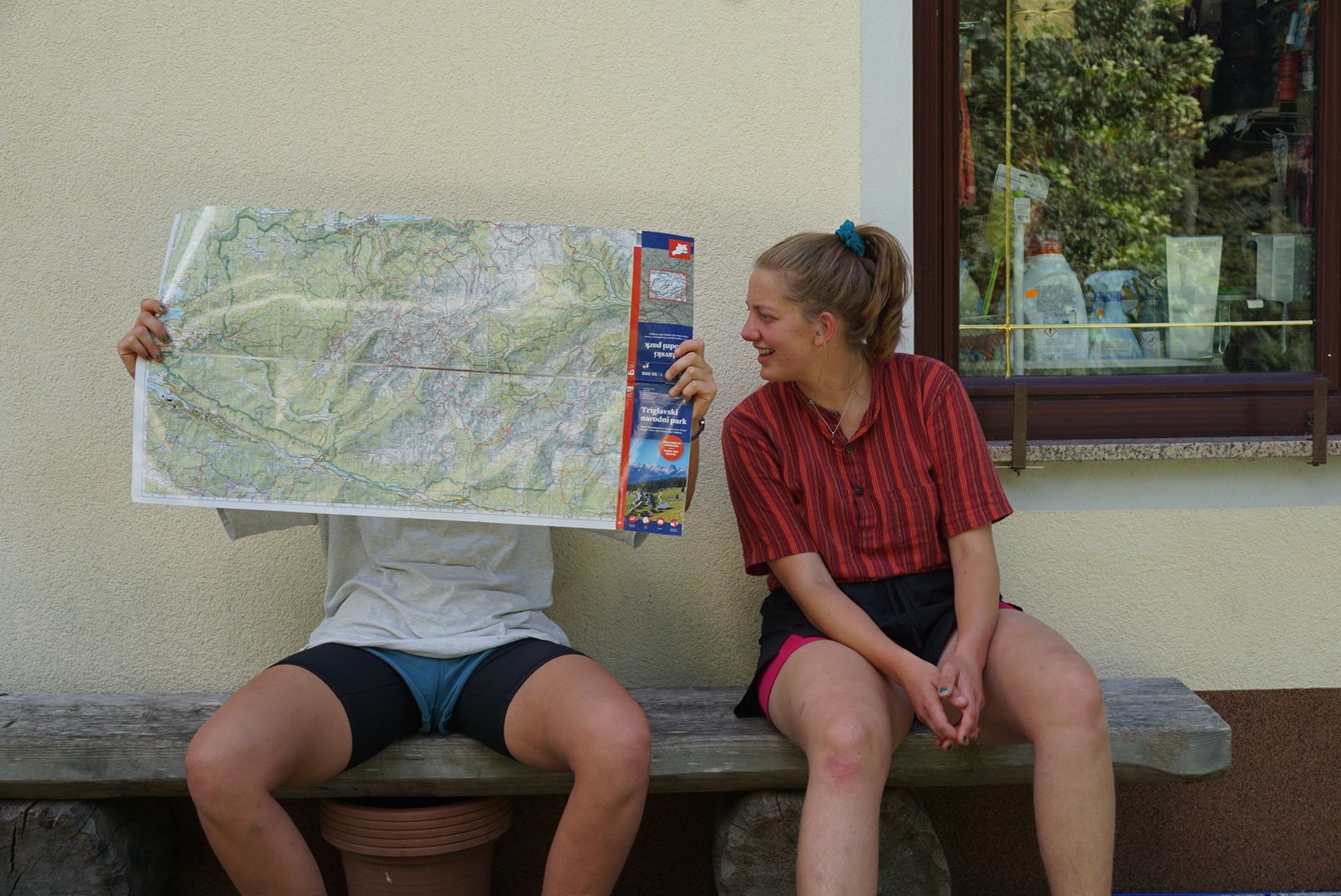By Lydia Butt, Third Year French and German
The Croft Magazine // How do we measure our carbon footprints? Should we feel guilty about travelling if we care about the environment? Lydia delves into the questions that feel more and more relevant in the context of the climate crisis and offers an alternative way to approach travel.
Writing an article about sustainable travel makes me feel as big a hypocrite as any. I’m currently on my year abroad, in Nantes - and of course I travelled here by plane, followed two week later by my (very) heavy suitcase on another plane. I could try and justify myself by saying that the plane journey wasn’t too wasteful, because I’m going to be here for a few months, but I’ve had no hesitation in inviting my friends to travel the distance in order to visit me for just a few days. It would be a shame, though, if travel was tainted by overriding feelings of guilt. The good news is that there are ways to travel in an eco-conscious way, and the conversation of how we travel with as small a carbon footprint as possible deserves to be recognised as far more complex than simply offsetting the flights we take.
The environmental impact of travelling deserves to be taken more seriously. We have, rightly so, seen discussions around fast fashion gather momentum in recent years, and the patterns here could help us set a framework for how we talk about travel. Many of the problems in the fashion industry translate into the travel industry as well: one of the principal ones being over-consumption, particularly when paired with under-use.

In the novel ‘Around the World in Eighty Days’, Jules Verne imagines a situation in which his characters could realistically, though ambitiously, travel around the world in just under three months, using a variety of modes of transport. Such a notion captured the imagination of many and instilled a significant amount of disbelief. Nowadays, to travel around the world on commercial airlines can take as little as three days, admittedly on a less scenic route than that described by Verne.
There has been a monumental shift when it comes to the how and why of travel. Indeed, the changes seem to echo the criticisms of fast fashion we are now familiar with. It has become normal to take a return flight to a destination several hundred miles away and to only stay there for a weekend, the cost of the trip not quite reflecting the carbon footprint of the flight and its cost to the environment. In the same way, we have become increasingly aware of the gravity of buying a piece of clothing, the price of which not reflecting the labour costs, and wearing it just once or twice before throwing it away.
On the flip side, arguments that sustainable clothing is not always affordable and that the least well-off are being made to carry the blame of the fast fashion crisis could be likened to the frustration that families attempting to take cheap holidays feel when they are made to feel more guilty than millionaires in their private jets.
What’s more, while we have a responsibility to travel 'green', this seems a drop in the ocean when it comes to, for example, the vast number of ghost flights which took place during covid, a ploy by airlines to avoid having to hand out refunds to passengers who couldn't use their tickets due to travel restrictions. If, after all, the flights took place, passengers had simply missed their flight.

The light in the tunnel is that there are plenty of ways of travelling which are far more eco-friendly. Once you cross the Channel to Europe, for example, you'll find that sustainable modes of travel seem to be more second nature. In major cities, the public transport systems of trams, trains and buses puts the UK to shame. In the Netherlands, bikes rule the roads, and the French platform 'Blablacar' offers car-shares to neighbouring cities.
Of course, getting from one place to another is only the start of the story. Once in a destination country it can be incredibly rewarding to adapt an eco-conscious lifestyle, one which is often more community focussed and respectful of local customs and businesses. Food markets offer an excellent opportunity to buy fresh produce which is often locally sourced, and it can be a great joy to chat with producers about where they've sourced their products and to ask for tips or recipes in order to be able to make the most of what they sell. Habits which are not only eco-friendly but also community focussed add a new dimension to the word ‘sustainable’. It’s also really important to consider our impact, as tourists, on the wildlife and natural environment of the places we visit. Doing our research before departing can help us understand how to protect nature in the places we visit, and to appreciate the earth’s natural wonders in a way that doesn’t harm. There are plenty of international organisations and local projects which can help us to do this.
Travelling ‘green’ isn’t just about carbon offsetting our flights. It has to be about adopting a mindset which recognises the carbon footprint of all of the modes of transport we’re used to using, and of the harmfulness of some of our behaviours when travelling. But it’s also about recognising that travel can be one of the most significant motivators to protect our planet, as we experience its beauty and diversity. Not forgetting too that tourism can be one of the principal sources of income for certain destinations and communities. The concept of ‘green’, and perhaps slower travel should be a source of excitement for both our experience of it and the alternative it offers to stomping our way across the globe.
Featured image: Ⓒ Finnuala Brett
What green, alternatives ways to travel have you found?









